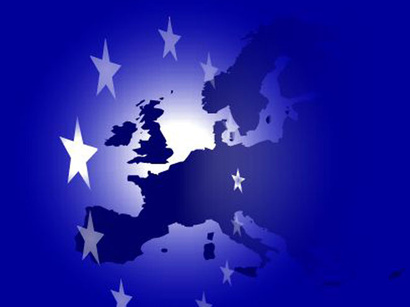Cameron needs to find a thatcher moment on Europe

By Bloomberg
If the European Union truly wants the U.K. to remain a member of the 28-nation bloc, EU leaders need to be more sympathetic to Prime Minister David Cameron's domestic political plight.
Last week, the European Commission recalculated the budget contributions and rebates for the EU's members, resulting in a demand that the U.K. pay an extra 2.1 billion euros ($2.7 billion) by Dec. 1. In European news reports, Britain was portrayed as being punished for having a stronger economy than its peers. Cameron himself expressed surprise at the demand on Friday, tweeting, "It's an appalling way to behave and I won't be paying it on Dec. 1."
The bill comes at a tough time for Cameron and his Conservative Party. The U.K. Independence Party -- which is campaigning for Britain to quit the EU -- won its first seat in Parliament after a Tory lawmaker switched sides and won a special election earlier this month. A second Tory defector to UKIP faces the electorate on Nov. 20.
Cameron has made a twin pledge to push for EU reform and to hold a referendum on British membership by the end of 2017. Privately, the Tories are convinced they have the backing of their neighbors to restrict EU encroachment on national sovereignty; in public, though, the rhetoric of Cameron's fellow leaders is unhelpful to his cause.
U.K. voters regard immigration as the most serious issue facing the nation. In response, Cameron has focused on changing the policy of free passage of EU citizens among member states. Yesterday, though, the Sunday Times reported that German Chancellor Angela Merkel said she opposes any restrictions:
Germany will not tamper with the fundamental principles of free movement in the EU.
A defining moment from the premiership of Margaret Thatcher may show the way forward. In 1979, at a summit meeting in Dublin, she demanded the return of some of Britain's EU contribution. Although this was cited repeatedly by the press as Thatcher's "I want my money back!" speech, her comments were actually more nuanced:
We are not asking for a penny piece of Community money for Britain. What we are asking is for a very large amount of our own money back, over and above what we contribute to the Community, which is covered by our receipts from the Community. We are giving notice of that and we want a very large proportion of our own money back, because we need it at home and we are having to cut expenditure at home.
That demand for a rebate of 1 billion pounds -- about $2.2 billion at the then-prevailing exchange rate, just a bit less than the EU currently wants from Britain -- enabled Thatcher to appease the anti-European faction in her party, even as Britain became a more active member of the union. After Thatcher's press conference, the press corps in Dublin delivered an unprecedented round of applause.
Cameron likewise needs to be seen fighting Britain's corner -- and, out of self-interest, the EU's apparatchiks should be helping him achieve it.
With the Conservatives and the Labour party neck-and-neck in current opinion polls, it's far from clear what the outcome of Britain's May 2015 election will be. But even if it wins, a Conservative Party that's been damaged by infighting over Europe will have a harder time making the argument to stay in the bloc.
Here we are to serve you with news right now. It does not cost much, but worth your attention.
Choose to support open, independent, quality journalism and subscribe on a monthly basis.
By subscribing to our online newspaper, you can have full digital access to all news, analysis, and much more.
You can also follow AzerNEWS on Twitter @AzerNewsAz or Facebook @AzerNewsNewspaper
Thank you!
